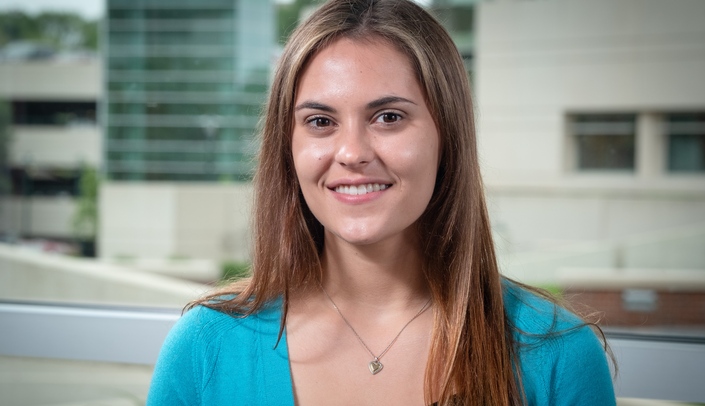On May 28, the Nebraska Institutional Development Award Program (IDeA) Networks of Biomedical Research Excellence (INBRE) program welcomed 29 undergraduate students from across Nebraska as they embark on their summer research experience at Creighton University, the University of Nebraska-Lincoln and the University of Nebraska Medical Center.
The INBRE program is overseen by Paul Sorgen, Ph.D., a professor in the department of biochemistry and molecular biology at UNMC and principal investigator of the $16.2 million National Institutes of Health grant that supports the program.
Established in 2001, the INBRE program was created to expose students to serious biomedical research, build a statewide biomedical research infrastructure between undergraduate and graduate institutions and to strengthen undergraduate institution's infrastructure and increase its capacity to conduct cutting-edge biomedical and behavioral research.
The students, referred to as INBRE scholars, enter the program after completing their sophomore year of college upon recommendation by their college professors. The students receive a two-year scholarship and spend 10 weeks each summer conducting research on either their home campus or at UNMC, the University of Nebraska-Lincoln or Creighton University.
At the end of the summer, the students attend the INBRE annual meeting where they give an oral presentation on their research project.
Below Delaney Villarreal, a microbiology major at the University of Nebraska-Lincoln, talks about her INBRE experience.
Tell me about yourself.
“I am currently in my junior year at UNL, studying microbiology and biochemistry. Though I am very dedicated to my scholastic work, I also follow my interests in other areas, including music.”
Who are your heroes?
“I have many successful role models in my life, but I've always considered my mother to be my gold standard. If I can become half as skilled and selfless as her, then I will consider it to be a complete success!”
What are your career goals?
“Following my undergraduate degree, I plan to get both an MD and a PhD in order to work on a problem from both the bench and bedside in order to better find translational treatments.”
How did you become interested in science?
“My dedication to science is truly a dedication to following my interests. Science to me is simply the work that gets me excited and makes me want to wake up in the morning.”
What do you hope the INBRE program will do for you?
“The INBRE program will give me access to a large network of highly-skilled professionals as well as numerous opportunities to learn and improve my own skills. This program is a truly invaluable system to give students prolonged and in-depth exposure to science as a field and promotes the progression into graduate school with their support and experiences.”
How do you see science evolving over the next 20 years?
“As sequencing technology develops, I can see treatments becoming highly personalized to each particular genome in order to provide more effective care for patients. Research is already moving at a breakneck pace. I cannot see this stopping or slowing in the coming years, and I am excited to be a part of it.”
We are Nebraska Medicine and UNMC. Our mission is to lead the world in transforming lives to create a healthy future for all individuals and communities through premier educational programs, innovative research and extraordinary patient care.
Twitter | Facebook | Instagram | YouTube | Flickr
